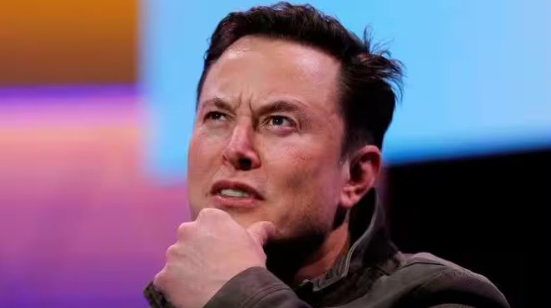Elon Musk’s ventures are stirring the pot again in Brazil, where a fresh fine has been slapped on his companies—following an unexpected twist in the country’s ongoing tug-of-war with his social media platform, X. Just a month after a strict ban blocked Brazilians from accessing the platform, users found themselves back online… albeit briefly. A glitch? A deliberate move? That’s the question everyone’s asking as this digital chess match unfolds.
BREAKING: Brazil’s Supreme Court on Thursday ordered Elon Musk’s X to suspend access to the social network, after service was restored despite a ban, or face a daily fine of over $900,000. pic.twitter.com/0OdeVs9yT5
— World Times (@WorldTimesWT) September 19, 2024
On Wednesday, out of nowhere, Brazilian people who had the accounts returned to it after the platform suddenly reappeared. The cause? A shift in how the company’s servers were accessed in the country. But it wasn’t long before the platform forced to shut again— access was quickly denied a few hours later, and officials were less than pleased with the temporary breach.
Brazil’s Supreme Court reacted in no time. Judge Alexandre de Moraes labeled the incident as a “trick” and immediately handed down a hefty fine—five million reais (just shy of a million dollars) for Musk’s companies. X wasn’t the only target; Starlink, Musk’s satellite internet firm, also faced the penalty. Yet there’s uncertainty in the air… can this be enforced the way it has been done? Musk’s companies have previously shrugged off court orders in Brazil, including the one that led to X’s ban in the first place.
The glitch that allowed users to access X wasn’t planned, at least according to the company. They explained it away as an “inadvertent” change in network providers, which temporarily restored access for Brazilian users. They assured everyone that they were working to get back online officially but had to comply with the ban in the meantime.
But it is not right that each and every person is buying that story. Basílio Rodriguez Pérez, an advisor to ABRINT, the country’s top internet service provider association, expressed skepticism. He said the whole situation seemed too convenient, too “on purpose.” He pointed out that the platform switched to dynamic IP addresses—those ever-changing digital fingerprints—making it harder for the government to keep a lid on X. Previously, specific IP addresses had been easier to block, but this new setup… well, it’s a different beast.
BRAZIL SEIZES $3.3 MILLION FROM MUSK COMPANIES’ ACCOUNTS (Bloomberg)
Brazil withdrew 18.35 million reais ($3.3 million) from the bank accounts of Elon Musk’s X and Starlink to pay for fines imposed by the Supreme Court, continuing a dispute that’s led to the blackout of the… pic.twitter.com/Ip5Umbj3Y7
— FXHedge (@Fxhedgers) September 13, 2024
Even more troubling? Some of these dynamic IP addresses overlap with vital services— banks, payment platforms like PIX. shutting them entirely down could wreak havoc on the broader digital infrastructure of the country, leaving the government walking a tightrope.
While the platform slipped back into the shadows for now, questions remain. Could this have been an intentional chess move by Musk’s team? Or just a technological hiccup blown out of proportion? Some experts think Cloudflare, the company hosting X’s servers, might be able to help Brazil clamp down harder. Felipe Autran, a constitutional lawyer in Brasilia, believes that if Cloudflare cooperates with the government, the ban could stick more firmly in place. And given Cloudflare’s significance in Brazil—serving everything from major corporations to government entities—there’s a good chance they’ll play along.
Brazil’s standoff with Musk’s companies are in deep mismanagement. The conflict began months ago when the platform failed to meet a court deadline to appoint a legal representative in the country, prompting a full-scale ban. The stakes escalated from there, with Justice de Moraes targeting X for allegedly scattering wrong information to spread unexamined.
Starlink, Musk’s satellite provider, even chimed in at one point, claiming they could let the users of Brazil bypass the ban by accessing X via their network. That idea was quickly squashed after the country’s telecom agency threatened to revoke their license.
BREAKING🚨: Brazil judge orders X to suspend service or face $900,000 daily fine — AFP pic.twitter.com/fsn7fViY3v
— Officer Lew (@officer_Lew) September 19, 2024
As the situation stands, Brazil is a critical market for Musk’s platform. And yet, relations remain frosty… observers watching from the sidelines feel like pawns on a board where the government and X are the only real players. As Pérez aptly puts it, “It’s a game of chess and we are the pieces, not the ones making the moves.”
Major Points:
- Brazilian authorities fined Elon Musk’s companies after users briefly accessed the banned social media platform X.
- The court imposed a daily fine of five million reais ($920,000) for breaching the ban.
- X’s access glitch is blamed on a change in network providers, though some experts suspect it was intentional.
- Dynamic IP addresses complicated efforts to block access, raising concerns about impacts on essential services like digital payments.
- Brazil’s ongoing feud with Musk’s platform stems from disinformation concerns and a failure to meet legal requirements.
Susan Guglielmo – Reprinted with permission of Whatfinger News



